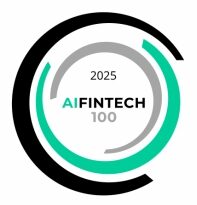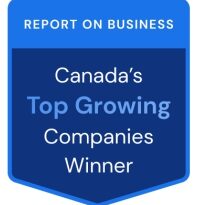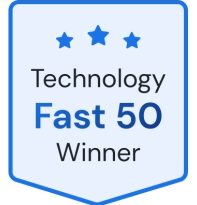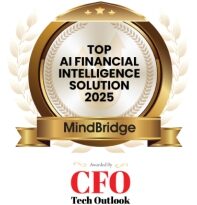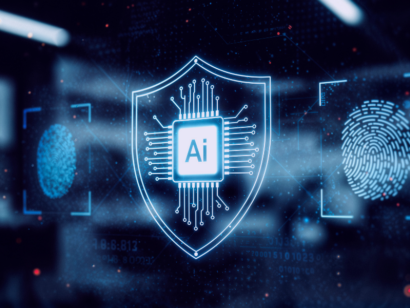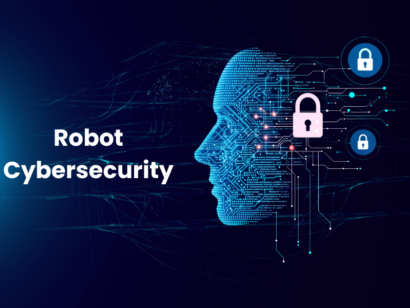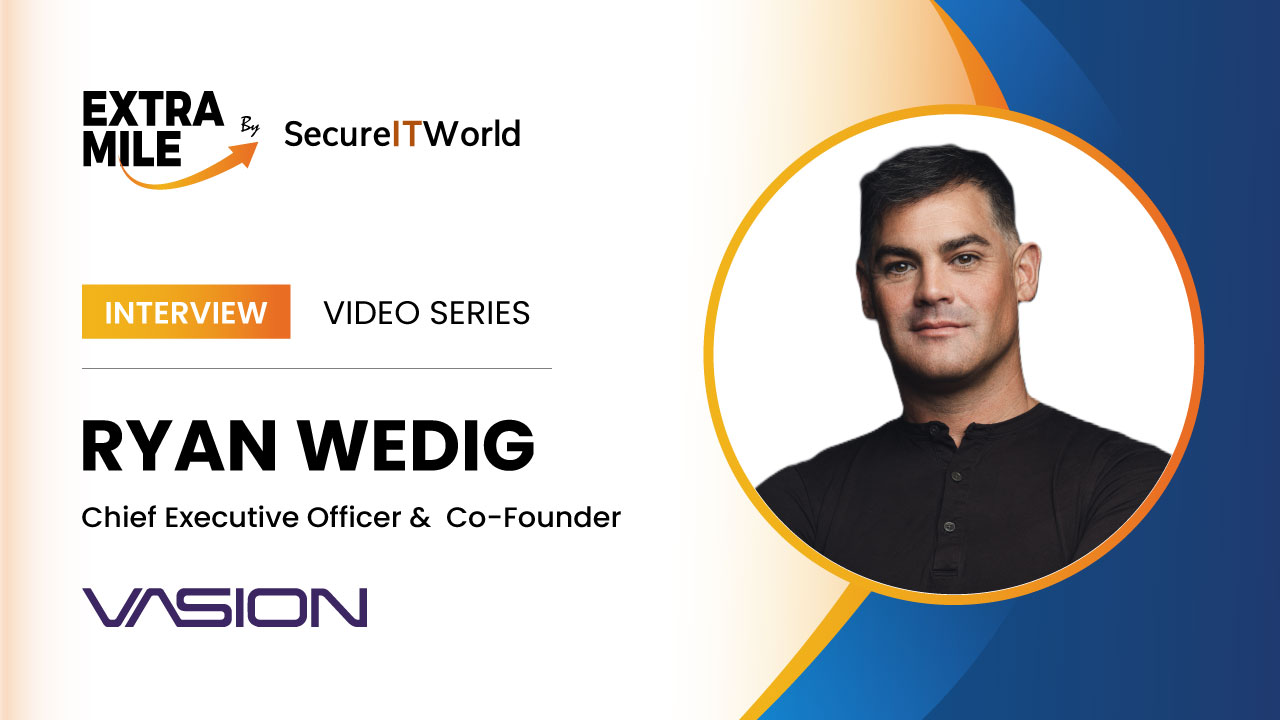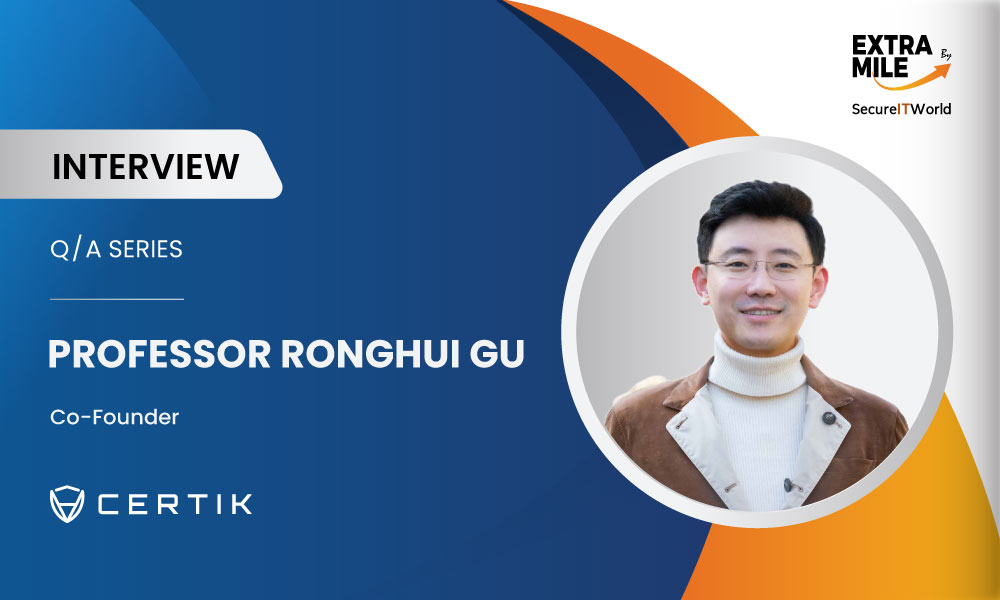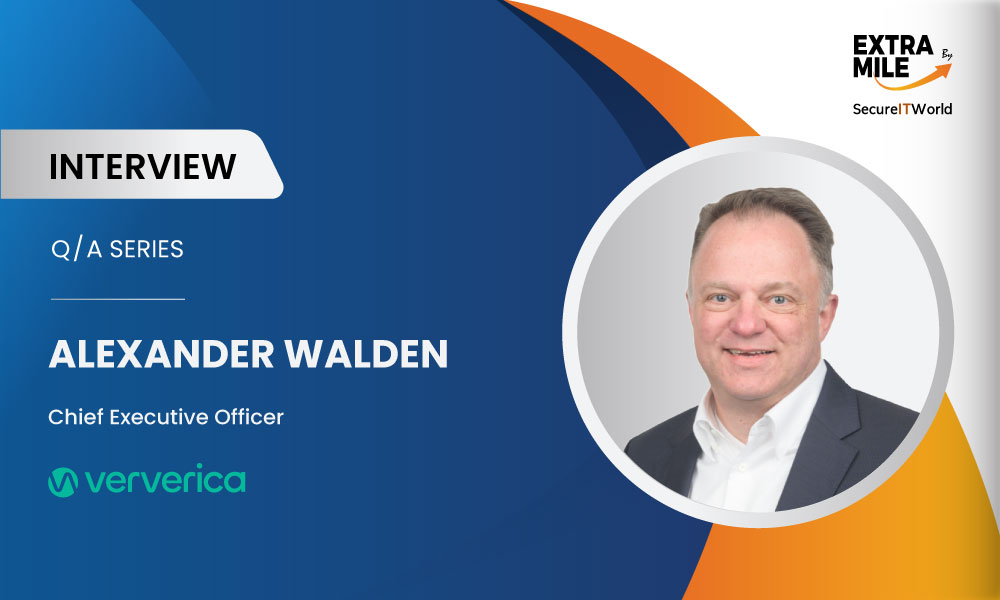Host: Hey everyone, get ready for another exciting episode of ExtraMile by SecureITWorld, a spotlight interview series featuring industry leaders, businesses, trailblazers, and visionaries in the tech, AI, and cybersecurity space.
Here is your host, Sudakshina and today we are here to discuss everything around impeccable leadership in and around Financial AI, Intelligent Risk Management and more. For today's exclusive episode, we are super excited to feature Stephen DeWitt, CEO of MindBridge, a global leader in AI, Powerful Financial Risk Intelligence Management.
Stephen has an outstanding career from founding several influential startups to key roles at tech industries giants like Hewlett-Packard, Cisco, Symantec and Oracle. Here at MindBridge, Stephen raises the bar of excellence by leading the strategic direction and development of the company. Further, he assists in re-shaping how finance leaderships analyze every transaction in real time to detect risks, errors and opportunities for optimizing.
Under his leadership, MindBridge is building the finance department for the future. Let's get through Stephen DeWitt journey, AI-driven financial intelligence and trends in the finance space and more.
Welcome, Stephen. We are truly delighted to have you with us today!
Stephen: Thank you very much. Thank you for the warm introduction!
Host: So, your career spans leading tech startups to global industry giants like Hewlett-Packard, Cisco, Symantec and Oracle. During their pivotal times, what were the defining moments, mainly the high and the challenges that shaped your vision and leadership aura?
Stephen: Well, it's a great question. I'm a child of the industry. I'm in my, I think, maybe my 42nd, 43rd year of building technology companies.
When I was a teenager, 18 years old, I had a ponytail, I had my ear pierced and did my first startup, which we launched at the very first Macworld in 1985. I've had the opportunity, as you said, to work with great companies at defining moments. I was at a little startup called Symantec.
We were very much a retail company and then the Michelangelo virus hit in the early 90s and we had to become a security company. And it's a very different relationship with the customer when they're looking at you to secure their, the integrity of their technology. A few years later, I had the opportunity to serve on Cisco Systems executive staff at a time when people were learning to network, not only network between campuses, but internet working, the internet and the power of what that meant.
But being a networking vendor at that time required you to take the responsibility for a customer to make all the disparate parts of a network work in order for them to do business on top. Turn the clock forward to my years at Hewlett Packard during the rise of the cloud, mobility. These have changed all of our lives.
Our children will never know a world other than the dynamic world associated with mobility. The cloud has transformed our power and potential. And now pull the needle all the way forward to the world of AI.
Artificial intelligence is already impacting every aspect of our lives. It will transform economies, the Indian economy. If you think of the evolution of India's role as a global leader in technology and shared services and a number of other areas, be dramatically impacted by AI, both positively and negatively.
And like previous moments in technology, the industry needs companies that are focused on enabling technology. And that's what MindBridge is. We are a modern AI stack designed to allow customers to do comprehensive analysis of their financials in a way they couldn't do before.
And by doing that, ensure the integrity of their financials.
Host: Excellent. Truly inspiring, Stephen. So, with that experience in mind, I'd love to understand what drew you to MindBridge.
You are now serving as CEO at MindBridge, a pioneer in financial AI. Could you talk more about your role here and what influenced you to move into AI fintech space?
Stephen: Well, I've been in artificial intelligence for many, many years. It was just a few years ago we called AI data science. As the data explosion began, how you harness and use that data has been a passion of mine and a passion of many thousands of inspiring people I get to work with.
MindBridge specifically, what attracted me, I think, is what has attracted everybody to MindBridge. You've gone into ChatGPT or Gemini or some LLM in the last year, and you've gone in, and you've typed a query and gone, wow, look at all the information that's now at my fingertips. And we all can imagine the future impact of what this is going to have.
But when it comes to numbers, who's spellchecking your numbers? When you type the number 56, how do you know that it wasn't supposed to be 65? And when you typed in 56 and there's a control somewhere in your enterprise that says the number should only be between 5 and 20, what system is going to tell you that something is out of bounds and be able to do that in real time?
When you go outside and it's cold, you put on a jacket because your brain feels the senses here in real time and tells you what to do. In the world of finance, if I go into a word processor and I type and I misspell the word jump, a little squiggly line's going to come underneath it and tell me to fix the word. Or it'll fix it automatically.
That's very basic AI. Our AI is, and what attracted me here, our AI is what's called an ensemble AI, which means we take effectively all the known financial algorithms around risk, anomaly detection, variance analysis, statistical variations. We take all of that known information and analyze every piece of data against all of those use cases and then allow customers to build their own analysis on top of that.
That allows you to bring the same kind of real-time, continuous sophistication to your numbers that you see with text in other parts of your life. And MindBridge is very much a pioneer there.
Host: That's an interesting shift and you have made it sound very purposeful. Since you're leading an AI-first company, I'm curious about the kind of impact MindBridge delivers in the real-world finance operations. Could you walk us through the core benefits of MindBridge's AI-driven financial decision intelligence and how enterprises are using it to boost revenue and reduce operational costs?
Stephen: Yeah, I'll give you an example of a large oil and gas company. If you think about anybody in the oil and gas industry, they really have two major things to do. One, they buy land, or they lease land, or they rent land, or they co-own land, or ultimately there's land involved.
Or sea or somewhere, but there's a place involved. The second thing they do is they drill, or they mine, or they're an energy company, so they harvest energy. Two things, land and harvest energy.
So if you just think about land, a large oil and gas company, and you can think of all the big brand names of oil and gas companies, a very large oil and gas company will likely own tens of thousands of pieces of land, or they'll lease them, or they'll be partnered with them, or they'll own them with 25 people. Now imagine, if you will, that all 100,000 of those places need to have their lawn mower. I know that seems really simple.
I mean, how simple can you get? They just need their lawn mower. Okay, and let's say for simple purposes that the lawnmower person costs $100, but of course these are 100,000 locations in different areas with different currencies.
So, let's just say it's roughly $100 in each location. But in locations one through five, I actually own that land along with 15 other people. And so that $100 has to get split amongst those 15 people.
And by the way, person number 12 has a contract where they don't have to participate in any of the maintenance. So it's actually, they're freed from paying, so it's actually 14 people on that land. But in the other properties, it's different.
So, imagine the complexity across 100,000 pieces of land and try to ensure that when you pay somebody to do maintenance, you're paying the right amount. Now imagine, if you will, instead of somebody paying $100, they wrote in their invoice $1,000. How are you going to catch that?
What software, what magic out there is going to catch that? And then the other side of that is back at the corporate head office, they have a rule that says we should never spend more than $100. And so how is that rule going to be executed all the time through the payroll system that they may be using in country Y to pay that individual there?
And that workflow may be hitting 15 different systems. How do you ensure that the rule isn't broken? You were never able to do this before AI.
And the reason why you can do it now in AI is that there is enough computational power, GPUs, computational power that you can analyze everything. And as you analyze it and you see things, you can take action that. That's the future moving forward.
Host: That's impressive. Financial intelligence is becoming indispensable and MindBridge is clearly setting new standards. So, let's check on the next.
AI and automation are reshaping workflows. Specifically, how is MindBridge helping to reduce manual effort in detecting financial errors?
Stephen: Well, I'll take a very different market and a very different dynamic, the world of audit. As you know, large companies are regulated. They have rules.
Here in the United States, we have the SEC, which governs the financial integrity of any publicly held company. So, expectations are high that you're going to look at things. So, if I'm an auditor, if you think of traditional audit, an auditor would go into a regulated company, usually on an annual basis, and they would look at a sample of data.
And on that sample of data, they would make an assessment as to the integrity of the control mechanisms of a company, a sample. That would be the equivalent of you going to the doctor next Thursday, having a half an hour checkup and then saying, hey, you're all good. Not so sure about that.
So instead of going from a sample of data to all data, to go from once a year to all the time requires a capability and a set of tools that an auditor now has that they didn't have before. And so, when you think of professions like accounting and finance, specifically, those roles are evolving to be much more technology enabled than they were in the past. Now, instead of having to mine spreadsheets and, you know, tens of millions of rows of data, AI can do all of that analysis and bring to my experience what I need to do and what matters most.
Host: Absolutely. Removing manual errors is such a vital step for operational resilience. This makes me wonder how businesses are shifting from fixing problems to actually anticipating them.
So, I'd like to know your thoughts on that. In today's high-stake environment, why is it crucial for companies to shift from reactive to proactive financial risk management? And how does MindBridge support this transition?
Stephen: If you’re not proactive in leveraging AI to not only make your analytics predictive but also dynamic in responding to change, you risk becoming obsolete. The ultimate state of business is a superfluid market, where there’s no friction between buyers and sellers, and only the most adaptive companies will thrive there.
And whether you're a car company or a health care company, an oil and gas company, a bank, you know, your ultimate goods and services, you know, your ultimate model eliminates, you know, whatever barriers exist between you and your buyer.
And so, if I go back to that analysis that I was telling you about the oil and gas company and all those different properties. If they end up spending 1,2,3, 4% of EPS to deal with all of the errors and the mistakes they're doing, that's one or two or three points of EPS. They're not spending on eliminating friction in their go to market, eliminating friction in their exploration, the things that ultimately, they need to do to drive revenue.
Believe me, an oil and gas company doesn't want to spend money on mowing the lawn. They want to spend money on creating more energy. So, the lack of efficiencies that are that are a result of just the modern way businesses are run, that's a key area to go.
We named ourselves MindBridge because we're at a moment where there is more ability to process now than we have the ability to process in our brain. So, humanity and technology at a processing level are now at par with one another. And so, the extension of human thinking as a result of technological collaboration is really limitless.
And it will be the people that we talk with, the C-suite executives that we talk with every day who aren't thinking about, oh, how do I make my oil and gas company 20 percent better? They're thinking about how do I double my revenues with half the people?
Host: Proactive financial strategies really do put business ahead of that curve. Moving on, could you share a real-world success story where MindBridge helped a client elevate their audit process and mitigate risk?
Stephen: Well, look, audit is how in control are you, however you look at it. I'm sure you audit your checkbook and make sure you have enough money to pay the rent and to do your stuff. There's a lot of political craziness going on in the world, too, right now.
Tariffs and just bad stuff. But the need for truth in numbers has never been greater. And that's why our mission statement, I mean, we're a very intense data science company.
We're nerds. But we focus our power not on everything. We focus our power on financial integrity.
And so, whether you're auditing internally or externally, AI is a super capability that again, go back to the spellchecker analysis. We're very excited to be the spellchecker for numbers.
Host: That's a powerful outcome. It's stories like this that highlight the real impact of the tech. Still many businesses lag behind, especially those being outdated systems.
I would like to know your take on that challenge. Many organizations still rely on legacy financial analysis systems. In your view, does this increase fraud and compliance risk?
And how can MindBridge help modernize this approach?
Stephen: Well, the legacy approach is susceptible to fraud. And I think the numbers are clear in there. I think in the United States, a typical Fortune 1000 class customer will lose just under 2% of their earnings due to fraud every year.
So, it exists. Most of the time, fraud is due to lack of operational control. And operational control is a human process.
It requires training. It evolves. People leave.
You know, you may have seen in the news a few months ago, Macy's, the famous US department store, had a $150 million accounting scandal that when they traced it back, it was from many years ago. And the people had turned over. So, the control mechanisms that were in place didn't stand the transition of people.
There was no automation in the controls. And so, fraud, when it happened, was roughly the equivalent of leaving your front door open. If you leave your front door open without a lock, fraud's going to happen.
And so, the weaknesses from a technology perspective and the weaknesses from a management control perspective are really, I think most of that will get wiped out in the new model. And again, we're moving to an autonomous model. I can't stress that enough.
In the future, that whole scenario that I talked about at Macy's couldn't happen. It's just eliminated from the possibility of happening. So, the financial impact, not simply on fraud, but on simple errors, as well as legacy control transformation, I mean, we address all of that.
Host: Absolutely right. Now I'd like to focus on one specific feature of your platform, MindBridge's audit and intelligence. Can you tell us more about MindBridge's audit intelligence and how does it enhance audit quality without requiring data scientists?
Stephen: Well, I don't have a slide here, but if I would, I would introduce you to Bridget right now. And Bridget is what we call our agentic interface between MindBridge and a customer's environment. Bridget has analyzed nearly a trillion transactions.
Bridget has audited hundreds of thousands of audits. Bridget knows every gap rule, every GDPR rule, every regulatory rule in India, every regulatory rule in Germany, France, the UK, Mexico, Brazil, Argentina, etc. Bridget has all of the algorithmic knowledge of every piece of data science ever written.
And all of this is completely programmable, if you will, to your audit methodology. So the way that PricewaterhouseCoopers determines something is in control may be different than the way that BDO or KPMG or EY or Deloitte goes through the same process of determining that something is good. You may call it one thing, I may call it something different, but we arrive at the same piece.
Our software through our patented technology allows firms like KPMG to reflect its methodology, its audit philosophy on top of all of that power that Bridget has. And we're the only company on the planet that does that.
Host: Well, that's remarkable, Stephen. To wrap up, I'd like to get your future outlook on where financial AI is heading. With decades of experience in tech and innovation, what trends or advancements do you foresee dominating the financial AI landscape in the coming years?
Stephen: Everything AI, from machine learning. We're an unsupervised machine learning platform. That is the most powerful form of creating intelligence.
And so, I think as we get better at scaling, the potential is limitless there. The human side of it is the agentic world. And look, I'm pretty sure that humanity's purpose is greater than working in spreadsheets.
And I think when we look back on that, when humanity looks back 100 years, 200 years from now, you know, it'll be, you know, these will be a pretty comical period of time where, you know, we're struggling to understand where humans and technology, you know, where it all fits, it'll become commonplace within a generation.
Host: True, definitely. Indeed, a great perspective, Stephen. The future of finance clearly holds big opportunities and it's exciting to see how innovation is driving change at every level.
So, with that, Stephen, we appreciate you joining this insightful discussion at ExtraMile by SecureITWorld. It was a wonderful discussion highlighting your career journey, your viewpoint on financial AI and how MindBridge is reinventing risk intelligence and has been remarkable.
Stephen: Thank you very much!
Host: A big thank you to everyone for tuning in this episode of ExtraMile by SecureITWorld. Here's your host, Sudakshina, signing off for the day. Keep in the loop with us for more insightful discussions from the industry and around.
Until then, stay secure and informed!
Explore Our Other Insightful Interview:



